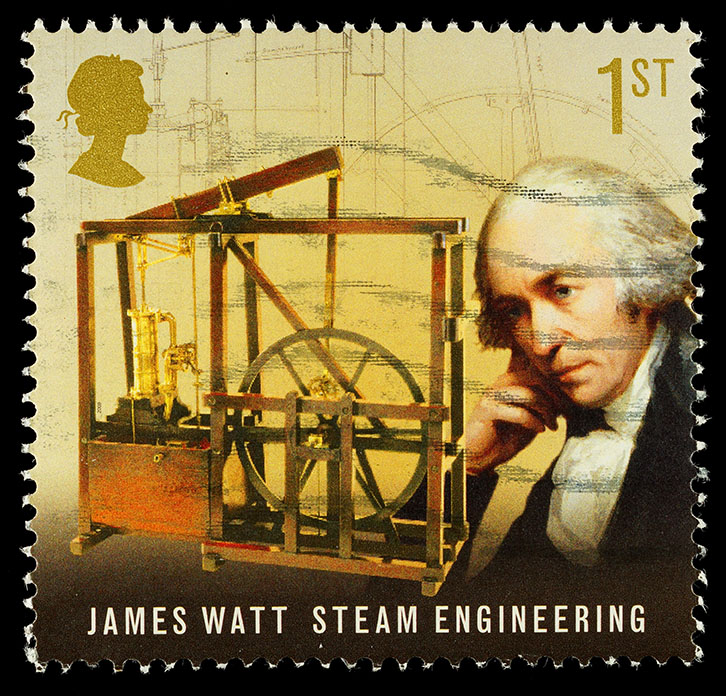

James Watt was a Scottish engineer who lived from 1736 to 1819. He is best known for improving the steam engine, which made it more efficient and powerful. This led to the Industrial Revolution, which was a period of rapid economic and social change in Europe and the United States.
Watt was born in Greenock, Scotland, and he studied mathematics and physics at the University of Glasgow. He then worked as an instrument maker in London, where he met John Roebuck, a manufacturer of steam engines. Watt was fascinated by steam engines, and he began working on ways to improve them.
In 1769, Watt patented a new design for the steam engine that made it much more efficient. This design included a separate condenser, which allowed the steam to be condensed back into water without losing heat. This made the steam engine much more powerful and efficient, and it led to its widespread use in factories and other industrial settings.
Watt's improvements to the steam engine were a major factor in the Industrial Revolution. The steam engine was used to power machines in factories, which led to increased production of goods. The steam engine was also used to power locomotives and ships, which made transportation faster and cheaper. The Industrial Revolution changed the way people lived and worked, and it led to a period of rapid economic growth.
Watt was a brilliant engineer and inventor, and he is considered to be one of the most important figures in the history of technology. He was awarded the Copley Medal by the Royal Society of London in 1784, and he was knighted in 1814.
In 1764, Watt returned to Scotland to work as a consultant engineer.

The name "James Watt" does not have any other forms other than the full name itself.
The name "James Watt" is of Scottish origin. The name "James" is derived from the Hebrew name "Ya'akov", which means "may God protect". The name "Watt" is a Scottish surname that originated as a habitational name from any of the places called Watt, from the Old English personal name Wat.
What is James Watt famous for?
Question:
Who was James Watt and what significant contribution did he make to the field of science and technology? Explain his role in the development of the steam engine and its impact on the Industrial Revolution.
Answer:
James Watt was a Scottish engineer and inventor known for his revolutionary improvements to the steam engine, a key innovation that transformed the landscape of industry during the Industrial Revolution. In the 18th century, Watt made critical enhancements to Thomas Newcomen's steam engine design, greatly increasing its efficiency and practicality.
Watt's improvements, including a separate condenser and a governor to regulate speed, made steam engines far more efficient and versatile. These enhancements not only reduced fuel consumption but also enabled engines to power a wide range of machinery, from textile mills to locomotives. This breakthrough marked a turning point in industrial development by providing a reliable and efficient source of power, reducing the reliance on manual labour and water-driven mills.
Watt's contributions to the steam engine laid the foundation for the widespread adoption of steam power across industries. This, in turn, accelerated the pace of industrialisation, facilitating the growth of factories, transportation systems, and urban centres. The impact of Watt's innovation was so profound that the unit of power, the "watt," was named in his honour.
James Watt's transformative advancements in steam engine technology are a testament to the power of innovation and its ability to shape the course of history. His work revolutionised the way society produced goods and harnessed energy, ultimately shaping the modern world we live in today.
Address
Developing Experts Limited
Exchange Street Buildings
35-37 Exchange Street
Norwich
NR2 1DP
UK
Phone
01603 273515
Email
hello@developingexperts.com
Copyright 2025 Developing Experts, All rights reserved.